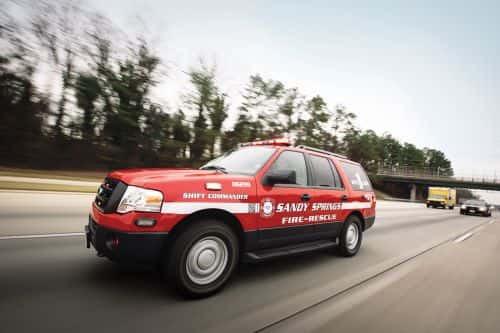 The Propane Education & Research Council (PERC) has joined a national taskforce promoting the addition of alternative fuel vehicles (AFVs) to emergency response fleets.
The Propane Education & Research Council (PERC) has joined a national taskforce promoting the addition of alternative fuel vehicles (AFVs) to emergency response fleets.
The Initiative for Resiliency in Energy through Vehicles is one of 11 projects funded by the U.S. Department of Energy's Clean Cities program to accelerate the growth of the AFV market. The National Association of State Energy Officials (NASEO) was awarded $800,000 in grant funds to administer the two-year project.
PERC says it will work with NASEO and 17 other member groups to provide emergency fleet managers with customized tools, information, and strategies about AFV technologies, infrastructure, and their uses in emergency scenarios.
According to PERC, the taskforce's resources will help emergency managers examine the potential costs, benefits, and interdepencies associated with diversifying their fleets, reducing dependence on petroleum, and increasing their energy security.
“Alternative fuels are very important for the emergency response sector,” says Roy Willis, PERC president and CEO. “Diversifying a fleet's fuel source insulates it from petroleum market volatility and mitigates the impact of supply disruptions. It's all about ensuring that priority fuel users can continue to operate in the face of natural disasters, major fuel source disruptions, and extreme weather events.”
During the past decade, PERC has invested heavily in the creation of propane-powered technologies. The organization says this investment has led to a dramatic expansion in the types of available propane vehicles, including those used by emergency response fleets.
“Our investments have helped make propane autogas a turnkey solution that can be implemented quickly, even on a tight budget,” comments Willis. “Law enforcement fleets around the country have already experienced success with propane autogas. These experiences, coupled with our technical expertise and industry insight, are what we'll bring to the iREV team.”
Photo courtesy of PERC: Emergency responders in Sandy Springs, Ga., utilize propane- powered police cruisers and fire rescue vehicles.






